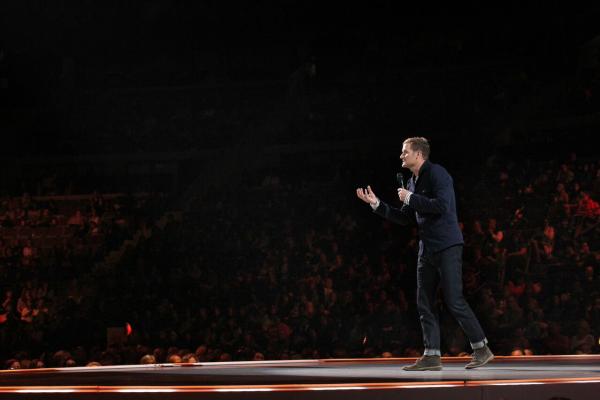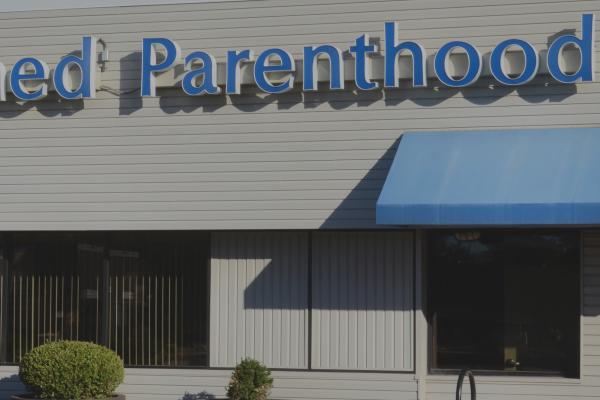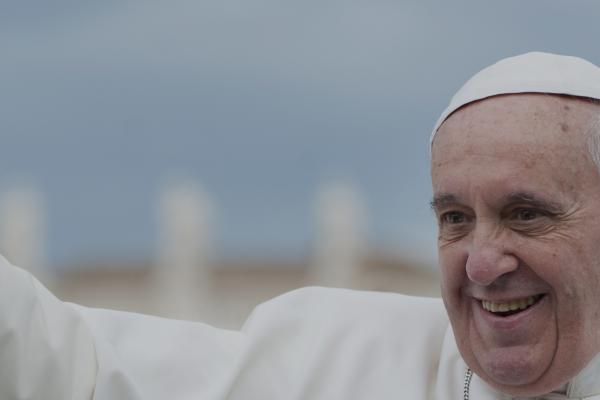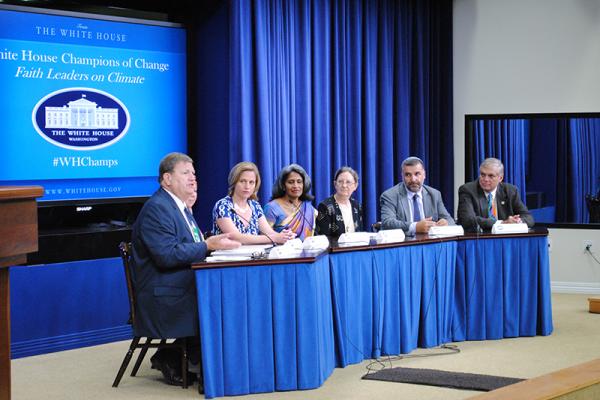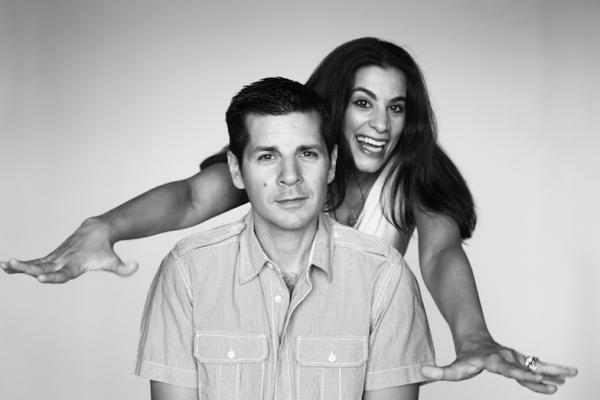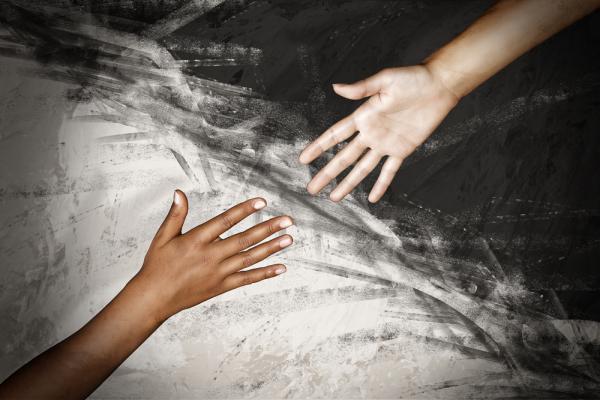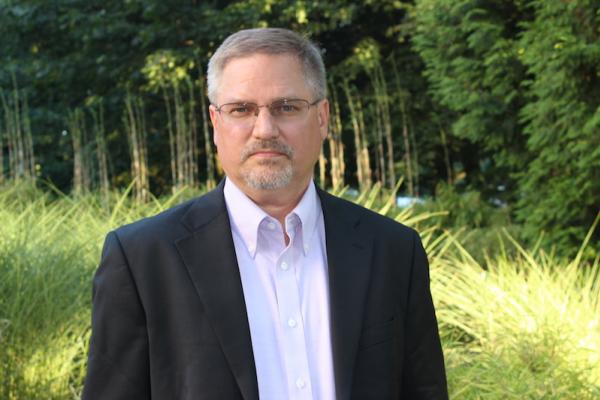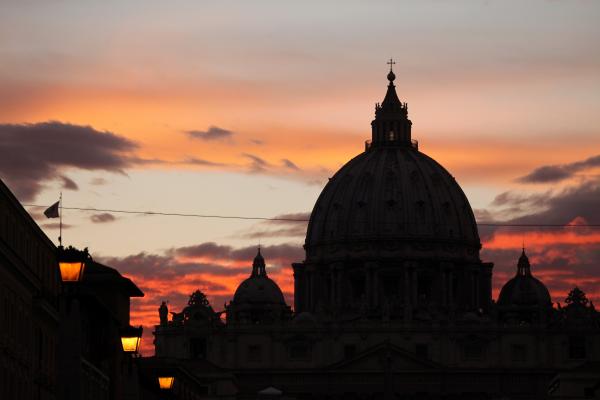Rob Bell is on the move. In his “Everything is Spiritual” tour, which makes its way through the Washington, D.C., metro this evening, he is focusing on the connections between science and spirituality and how we can sit within the reality of our ever-expanding universe. Sojourners’ Catherine Woodiwiss spoke with the author and speaker to talk spirituality, the “nones,” Oprah, science, and surfing.
This interview has been edited for length and clarity.
I won’t pile on Dr. Nucatola. The video seems pretty disastrous for her and for Planned Parenthood.
I will pile on us. Us? Yes, we the people of the United States of America.
We are the ones who have created a society in which we have become utterly dependent on abortion.
We are the ones who choose every year to turn to abortion clinics and drugs to end one out of five healthy pregnancies.
We are the ones who keep having sex outside of committed and marital relationships — and thus risking an unwelcome pregnancy.
We are the ones who keep having sex without using contraceptives, even when they are readily available.
We are the ones who fight over the politics of abortion without doing much to reduce demand for abortion.
Recently I experienced a wave of frustration related to my student loan debt. This happens from time to time, and really anything can set it off. Debt is stressful, as most of us are aware. Before I dive in, though, I’ve got to say that I’m more fortunate than many; I’ve been able to steadily pay on my debt for a while now. It’s still sizable enough to haunt me, but at least it isn’t a Poltergeist-style terror. That’s not insignificant.
Nothing so far is unique. Thousands of former students are dealing with the exact same thing, though in varying levels of distress or ease. What makes it slightly different is what degree I went into debt for.
I received a Master of Theological Studies degree from Vanderbilt Divinity School. So we’re talking about 1) a graduate degree, as opposed to a bachelor’s, which is widely regarded as necessary in this country to participate in the job market; and 2) a professional degree, meant to lead to practical ministerial work for the social good.
Growing conservative disaffection with Pope Francis appears to be taking a toll on his once teflon-grade popularity in the U.S., with a new Gallup poll showing the pontiff’s favorability rating among all Americans dropping to 59 percent from a 76 percent peak early last year.
Among conservatives the dropoff has been especially sharp: just 45 percent view Francis favorably today as opposed to 72 percent a year ago.
From a zero-waste synagogue to global development work after natural disasters, environmental projects by faith leaders are being hailed by the Obama administration as examples of exemplary leadership on climate change.
Environmental Protection Agency Administrator Gina McCarthy highlighted initiatives by a dozen leaders from a range of faiths, who were recognized July 20 in Washington, D.C., as “Champions of Change” for their environmental initiatives.
“As faith leaders, no voice is really more important than yours in this,” said McCarthy.
“Muslim Funny Fest,” billed as the first-ever American Muslim comedy festival, kicks off July 21 in New York City and runs for three nights.
The fest aims to challenge misperceptions about Muslims and combat hate. It features 15 Muslim comedians — from Dubai native Ali Al Sayed to “America’s Funniest Muslim” Azhar Usman — and there are more than a few familiar names on the marquee.
Co-organizers/comedians Dean Obeidallah and Maysoon Zayid are hoping it will be an annual event, and they may take the show on the road. Their successful annual New York Arab-American Comedy Festival, which features comedians from a range of faiths, enters its 12th year this fall.
When will we as a nation develop the social, moral, or political resolve to declare a war on racism?
There is a long history in America of campaigns of eradication, identified as "wars" — a "war on crime," a "war on drugs," a "war on poverty," a "war on terrorism," etc.
An interesting commonality of many of these so-called "wars" is that the perceived enemy is often portrayed as people of color.
Why is it that we as a nation do not seek the ending of racism with the same urgency we have sought the eradication of crime, drug use, or terrorism? Is it because the perceived enemy in a "war on racism" is not primarily people of color?
24/7 Wall St. published a special report this month on the ten states with the most hate groups. Using data from the Southern Poverty Law Center, the report states that there are 784 active hate groups nationwide.
The Lutheran Church-Missouri Synod recently carried out what various members consider the equivalent of a modern-day heresy conviction.
The case pitted two-term denomination President Matthew Harrison — who is known for his bushy mustache and conservative views — against Matthew Becker, an outspoken pastor and professor of theology.
Becker teaches at Valparaiso University, an independent Lutheran institution in Valparaiso, Ind., about an hour’s drive from Chicago.
Becker had raised questions about the denomination’s stance against the ordination of women, as well as its teaching of creationism, or the literal reading of the story of creation in the book of Genesis.
Becker’s insistence on talking about such issues has led certain members of the church to file charges against him, triggering several investigations.
Last year Becky Hammon made history with the San Antonio Spurs when she became the first female full-time assistant coach in the NBA.
This summer, she became the first female head coach in the NBA summer league.
And yesterday she led the Spurs to the NBA summer championship.
We aren’t basketball experts here at Sojourners, but that sounds pretty damn good. A helluva rise.
On July 21 and 22, the Vatican hosts two conferences on human trafficking and climate change, bringing the mayors of major cities — including several in the U.S. — to Rome for the events. What do human trafficking and climate change have to do with each other? And what does Catholicism have to do with them? Let us explain.
Q: Why is the Vatican concerned with human trafficking and climate change?
A: If Pope Francis has two pet issues, they are human trafficking and climate change. Since the first year of his papacy he has spoken against human trafficking, calling it “a crime against humanity” and lamenting it as modern slavery. It’s an even bet that when the pope addresses the United Nations in late September he will hammer it as one of the crucial issues of our time. Ditto on climate change. In June, the pontiff published his encyclical — the highest teaching of the church — on climate change.
“Our home is being ruined and that hurts everyone, especially the poorest among us,” Francis said just before the publication of the encyclical.
